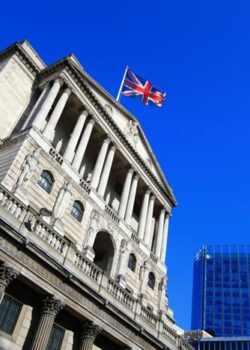Many businesses, including global companies, are “struggling” to understand the ESG reporting requirements they face, as demands from policymakers and regulators for increased disclosures are ramped up, according to a leading expert on ESG assurance.
Sarah Law, a partner and lead on ESG assurance at Deloitte in the UK, told viewers on a special webinar that pinning down the precise requirements—and the data needed to comply with them—was a significant challenge to companies with an international footprint.
In the UK, companies are dealing with the implementation of Task Force on Climate-related Financial Disclosures (TCFD) reporting, now mandatory for many organisations; a looming need to meet the demands of International Sustainability Standards; and now, potentially, the EU’s Corporate Sustainability Reporting Directive, which is in its final stages of completion. US regulators are in the process of signing off on their mandatory climate-risk reporting rules.
“Companies,” said Law, “are really struggling to find out the scope of what is required and then find sources of data. Then they need to think about controls and assurance.
“A lot of big FTSEs, especially global ones with complex businesses, are still struggling to just understand the requirements. We’ve still got a long way to go.”
Law was speaking as part of a special ESG data webinar hosted by Diligent, the boardroom software provider, and Board Agenda. The ESG data stakes were raised this year when the Financial Reporting Council (FRC), the UK’s financial reporting and governance watchdog, included a provision in a proposed new governance code giving audit committees responsibility for “monitoring” of “narrative” and “sustainability” reporting and the assurance of ESG metrics.
Kate O’Neill, the FRC’s director of stakeholder engagement, had some advice: “We would say to companies that TCFD is a good place to start,” she said. “One of the things we say is: don’t talk about something being super important to you if, really, you have no data or capital allocation, or anything to demonstrate that really is the case.”
Companies have been under pressure from investors to hurry along their ESG reporting. Lindsey Stewart, director of investment stewardship with Morningstar, a data provider, agreed investors were “hungry” for information. “But they’re also conscious that there is a huge lift to comply with all these overlapping, interlocking standards in various jurisdictions,” he said. “And that’s especially the case for global companies.”
With ESG reporting demands coming from the UK, EU and soon the US, companies face a challenge in organising their reporting effort.
Whose job is it?
Sarah Law said many companies need to formulate disclosure strategies, undertake materiality assessments, then work out which data is needed and who “owns” the task of pulling it together.
“We’re seeing many of the organisations we work with involve finance understanding the data, understanding where it comes from, looking at processes and controls and [therefore] moving that responsibility to the CFO and their teams.”
Kate O’Neill emphasised that ESG reporting culture has swung away from “big statements and flashy marketing campaigns; people want to know that you’re actually doing it.
“And if it’s not important to your strategy, be honest about why it doesn’t factor in.” She added: “Be true and authentic.”
Investors are not only interested in ESG risks. Lindsey Stewart noted they are also keen to hear about opportunities. “Where a company feels it has got to grips with a material ESG issue… they [investors] are going to see that as a source of competitive advantage against peers who may not be quite as advanced.
“Telling that story is hugely important to investors, particularly at a time when governments are ramping up funding opportunities and amending regulations to account for those impending risks.”
Watch the full Board Agenda & Diligent webinar here





